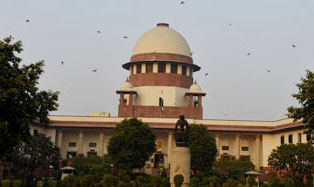The Supreme Court has ruled that reinstated workers are not automatically entitled to “back wages”, setting aside the concurrent findings of three lower courts that had directed the Jharkhand government to reappoint 37 sacked employees and pay them their full arrears.
The top court said reinstated employees were entitled to full back wages only if they could prove they had “not (been) gainfully employed” with any other organisation between their date of termination and reinstatement.
“It is necessary for the workman in such cases to plead and prove with the aid of evidence that after his dismissal from the service, he was not gainfully employed anywhere and had no earning to maintain himself or/and his family,” a bench of Justices A.M. Sapre and Abdul Nazeer said in a recent judgment.
“The employer is also entitled to prove it otherwise against the employee, namely, that the employee was gainfully employed during the relevant period and hence not entitled to claim any back wages. The initial burden is, however, on the employee.”
The verdict came as the bench allowed an appeal filed by the state through standing counsel Atulesh Kumar. The appeal had challenged the concurrent findings of the three courts directing back wages for the 37 employees of the Public Health and Engineering Department, Jharkhand.
The government had sacked the employees by reportedly citing austerity measures and also that the workmen were ad hoc appointees.
But in June 2005 a labour court directed that all the 37 employees be reinstated with back wages. The state moved the high court and a single-judge bench in 2008 upheld the labour court’s order.
The state challenged the decision before a two-judge division bench of the high court, which concurred with the findings of the two lower courts on February 2, 2017. The state then moved the top court.
The top court did not interfere with the order of reinstatement but said the lower courts had erred in directing full back wages.
“We are inclined to allow the appeal in part and while modifying the impugned order award 50 per cent back wages to the workmen in place of full wages.
“In our considered opinion, the courts below completely failed to see that the back wages could not be awarded by the court as of right to the workman consequent upon setting aside of his dismissal/termination order. In other words, a workman has no right to claim back wages from his employer as of right only because the court has set aside his dismissal order in his favour and directed his reinstatement in service.
“In some cases, the court may decline to award the back wages in its entirety whereas in some cases, it may award partial (wages) depending upon the facts of each case by exercising its judicial discretion in the light of the facts and evidence,” Justice Sapre, who authored the judgment, said.










